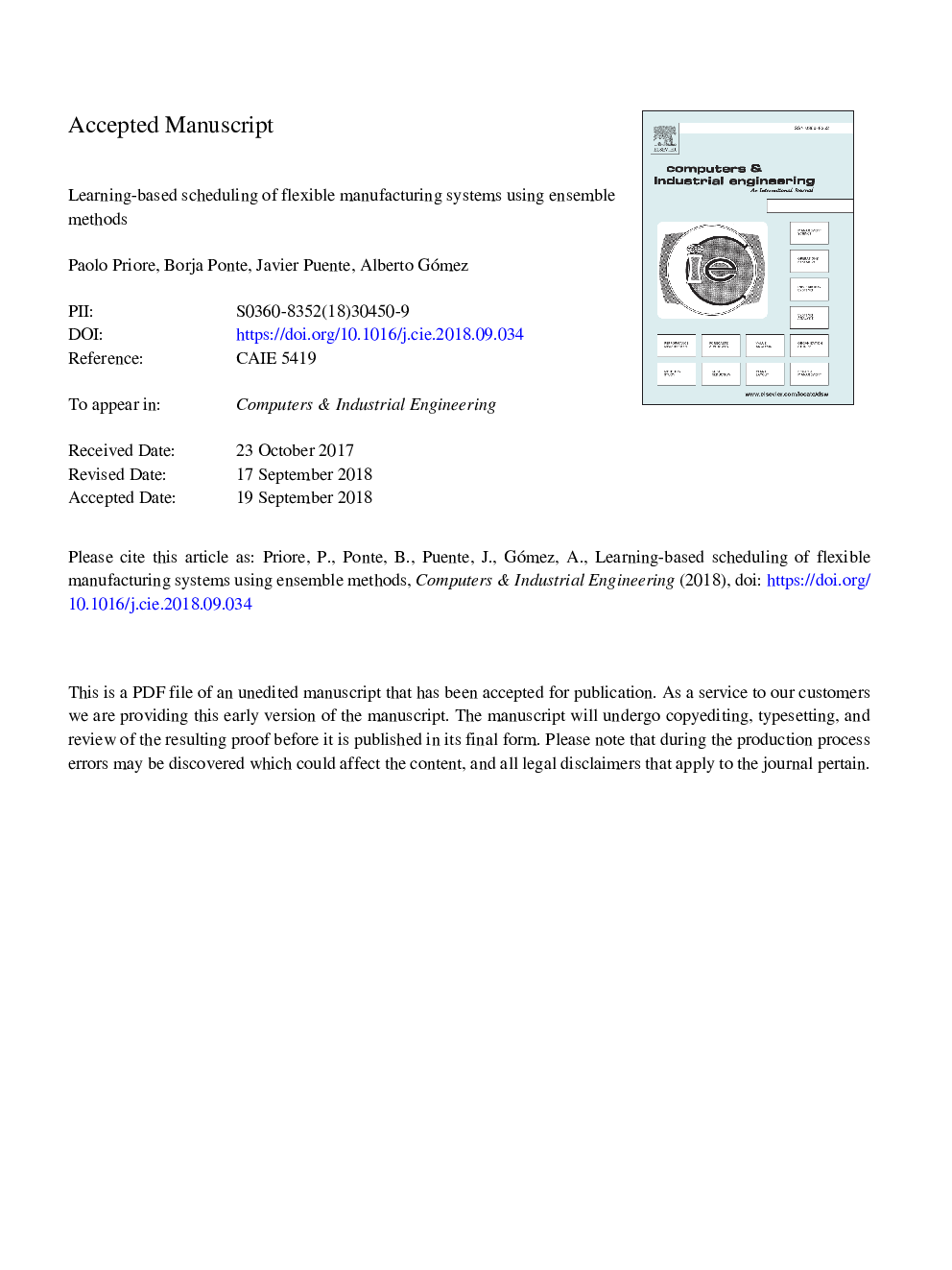| Article ID | Journal | Published Year | Pages | File Type |
|---|---|---|---|---|
| 11027467 | Computers & Industrial Engineering | 2018 | 32 Pages |
Abstract
Dispatching rules are commonly applied to schedule jobs in Flexible Manufacturing Systems (FMSs). However, the suitability of these rules relies heavily on the state of the system; hence, there is no single rule that always outperforms the others. In this scenario, machine learning techniques, such as support vector machines (SVMs), inductive learning-based decision trees (DTs), backpropagation neural networks (BPNs), and case based-reasoning (CBR), offer a powerful approach for dynamic scheduling, as they help managers identify the most appropriate rule in each moment. Nonetheless, different machine learning algorithms may provide different recommendations. In this research, we take the analysis one step further by employing ensemble methods, which are designed to select the most reliable recommendations over time. Specifically, we compare the behaviour of the bagging, boosting, and stacking methods. Building on the aforementioned machine learning algorithms, our results reveal that ensemble methods enhance the dynamic performance of the FMS. Through a simulation study, we show that this new approach results in an improvement of key performance metrics (namely, mean tardiness and mean flow time) over existing dispatching rules and the individual use of each machine learning algorithm.
Keywords
Related Topics
Physical Sciences and Engineering
Engineering
Industrial and Manufacturing Engineering
Authors
Paolo Priore, Borja Ponte, Javier Puente, Alberto Gómez,
